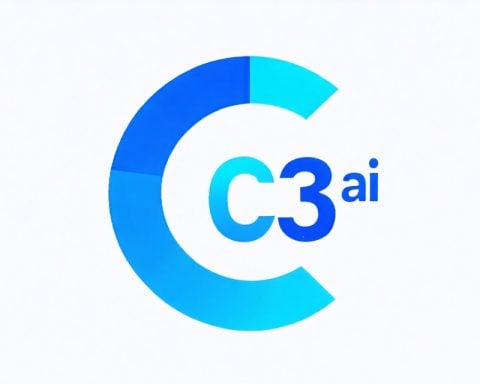Meta’s CEO, Mark Zuckerberg, recently announced an ambitious commitment to invest a staggering $60 billion in artificial intelligence by 2025. This substantial financial allocation signifies Meta’s intention to become a frontrunner in the rapidly evolving AI landscape.
In a recent Facebook post, Zuckerberg expressed his belief that 2025 will be pivotal for artificial intelligence development. This announcement highlights not only Meta’s confidence in the transformative power of AI but also its understanding of the technology’s potential impact on various sectors.
Zuckerberg’s declaration marks an important step forward for Meta, as the company seeks to strengthen its position in the tech industry. By directing significant resources toward AI initiatives, Meta aims to push the boundaries of innovation, offering cutting-edge solutions that could reshape the digital experience for millions of users.
As Meta gears up for this ambitious investment, the tech community is buzzing with interest in what advancements may come from this initiative. The focus will likely range from enhancing user engagement to developing state-of-the-art AI tools that could revolutionize content creation and interaction on social media platforms.
As 2025 approaches, all eyes will be on Meta as it embarks on this journey to harness the full potential of artificial intelligence—a move that could define the future of technology and social connectivity.
Exploring the Broader Impact of Meta’s AI Investment
Meta’s landmark decision to invest $60 billion in artificial intelligence by 2025 is poised to have profound implications for society and the global economy. This financial commitment not only amplifies competition within the tech industry but also signals a cultural shift in how technology will interweave with daily life. The acceleration of AI integration could redefine job landscapes, with automation enhancing efficiency across sectors while simultaneously challenging traditional employment models. Such a transformation may warrant a collective societal response, emphasizing the need for reskilling and education to prepare the workforce for emerging roles.
Moreover, the environmental ramifications of scaling AI capabilities cannot be overlooked. Increased demand for powerful computing resources often leads to a rise in energy consumption and carbon emissions. As AI systems become more sophisticated, the tech industry must prioritize sustainable practices to mitigate environmental impacts—this could entail investing in green technologies and optimizing data centers for energy efficiency.
As we look ahead, the future of AI development under Meta could foster trends like personalized digital experiences and enhanced social interactions, significantly shaping cultural dynamics. How society embraces or resists these changes will determine the long-term significance of this investment, as advancements in AI hold the potential to either bridge divides or exacerbate existing inequalities. The dialogue surrounding these developments is crucial as we navigate an increasingly AI-driven landscape.
Meta’s $60 Billion Bet: A Game-Changer in AI Innovation
Mark Zuckerberg, the CEO of Meta, has made headlines with his monumental commitment to invest $60 billion in artificial intelligence (AI) by 2025. This significant investment places Meta on a trajectory to become a leader in the AI space, a sector that is rapidly becoming integral to various industries.
The Impact of Meta’s Investment
Zuckerberg envisions 2025 as a turning point in AI development, indicating that this period will be crucial for breakthroughs that could transform how technology interacts with daily life. This initiative underscores Meta’s ambition not only to enhance its platforms but also to pioneer advancements that can redefine user interaction across digital landscapes.
Key Features and Innovations Expected
1. Enhanced User Engagement: Meta is likely to develop AI-driven algorithms that provide hyper-personalized content, thereby increasing user retention and satisfaction.
2. AI Tools for Content Creation: By investing in AI technologies, Meta aims to create sophisticated tools that facilitate content generation, allowing users to produce high-quality media effortlessly.
3. Improved Moderation Systems: With the rise of harmful content on social media, enhanced AI tools could improve content moderation, creating safer online environments for users.
Pros and Cons of Meta’s AI Investment
Pros:
– Advancement in Technology: Meta’s investment can lead to groundbreaking discoveries and innovations in AI.
– Job Creation: Such substantial investment can result in job creation within tech, research, and development sectors.
– Enhanced User Experience: Improved AI-driven services can lead to more engaging and enriching experiences on Meta’s platforms.
Cons:
– Privacy Concerns: Increased AI capabilities may raise concerns regarding data privacy and user consent as the technology advances.
– Market Competition: This bold move could trigger more aggressive competition among tech giants, which might lead to industry instability.
Market Analysis and Trends
The AI market is booming, with projections suggesting it will reach $190 billion by 2025. Meta’s decision to invest heavily in this space positions it favorably to capitalize on market trends and align with consumer demand for more intelligent, responsive technology.
Future Predictions
As Meta explores innovative AI applications, we can anticipate:
– A surge in AI-enhanced advertising solutions, providing advertisers with tailored insights.
– Expansion of virtual and augmented reality experiences driven by AI algorithms.
– Greater collaboration between AI systems and human creativity in fields like art and music.
Conclusion
With Meta’s ambitious commitment to AI, the tech landscape could see unprecedented changes by 2025. As users and industry observers, we should prepare for a future where artificial intelligence plays a pivotal role in shaping our digital interactions and experiences.
For more insights into the evolving AI landscape, visit Meta’s official website.






















